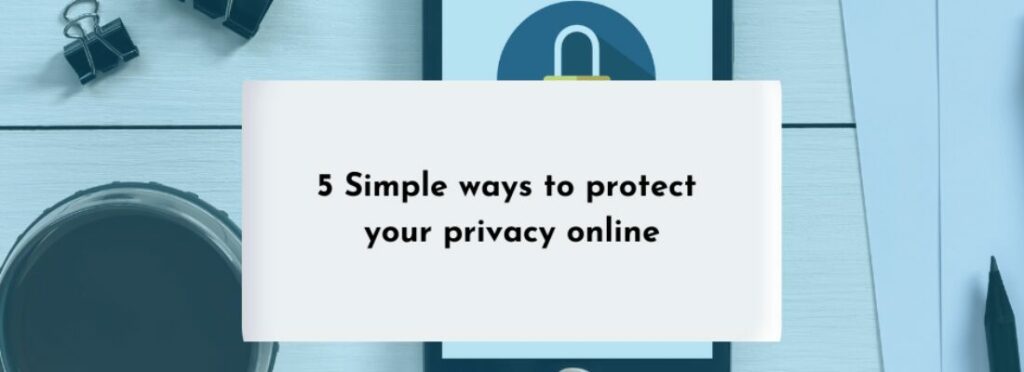The rise in scams and cyber attacks in our society has meant that we must be more vigilant when it comes to protecting our personal information from hackers. We have put some simple top tips together to help you protect your privacy, that you can implement straight away.
Password Protect Everything
All digital devices should be password protected – anything that contains personal data should be password protected. This includes PCs, Phones and Laptops etc. If unsecured devices are stolen or lost, anyone can access your personal information which could lead to identity theft.
Keep your PC or Laptop virus free
If your computer is infected by a virus or malware, hackers will be able to go through your data and steal your identity. The best way to protect your computer from a virus is to install an antivirus program to keep your software up to date and to check for security risks.
Be careful what you share on Social Media Platforms
It’s tempting to share photos, videos and personal information on social media because that’s what these platforms are for, sharing your life with family and friends. However, potential hackers can get a lot of information just by clicking through your profiles. Do not share photos or videos with an address or a car registration number and do not reveal to anyone that you are going on holiday. Don’t fill out a complete profile such as date of birth, telephone number, job information and email address. Keep your account private to those who you are not connected with. Most platforms will allow you to set up two-factor authentication and we strongly recommend that you do this.
Don’t fall victim to scams
Look out for suspicious websites, phone calls and emails that ask you for your personal information. Scammers are very clever in that they seem to be from a big well-known company(s). Remember that no legitimate company will threaten you with something if you don’t share personal information. If you are suspicious of an email, make sure you take a look at the email address it has been sent from, this is usually a clue as to whether they are real or not. If it’s come from an obscure address then it’s most likely a scam.
Secure your browser
Many of us spend a lot of time scouring the internet to shop, research and scroll through social media. Did you know that we can leave a trail of breadcrumbs each time we browse the internet.? There are websites and potential hackers out there that are always keeping an eye on what you are doing so it’s important to follow some steps to keep your browsing private.
The first step is to turn off third-party cookies. Advertisers use these cookies to serve ads based on your browser history.
The next step is to switch your browser to privacy mode. All web browsers give you the option to use a privacy mode when you’re searching the web. And these private browser options will keep your online activity hidden. Just be mindful that they don’t keep you completely anonymous as some people and websites can still track what you are doing.
If you still need help with protecting your online privacy for yourself or your business, we can help.
We offer a full IT Solution, helping business and public clients to run a problem-free environment.
Call us today on 01245 208080.
– By Justine Maher
